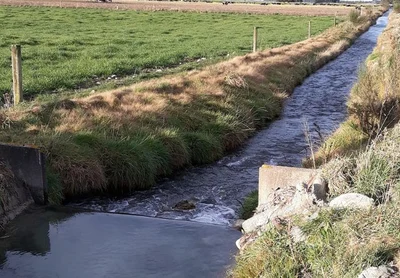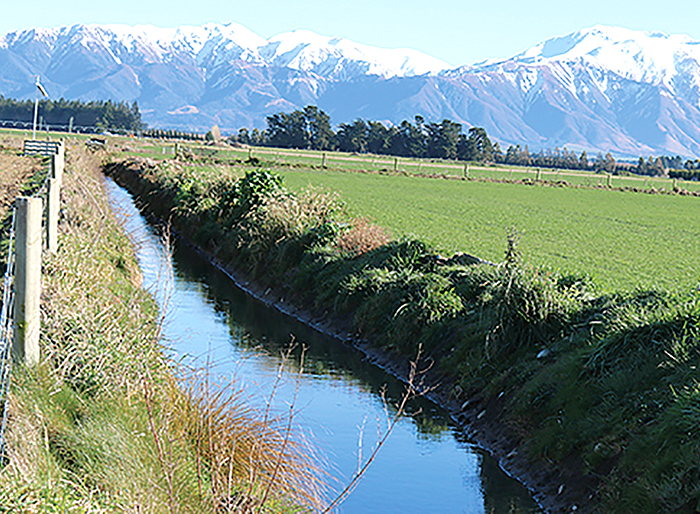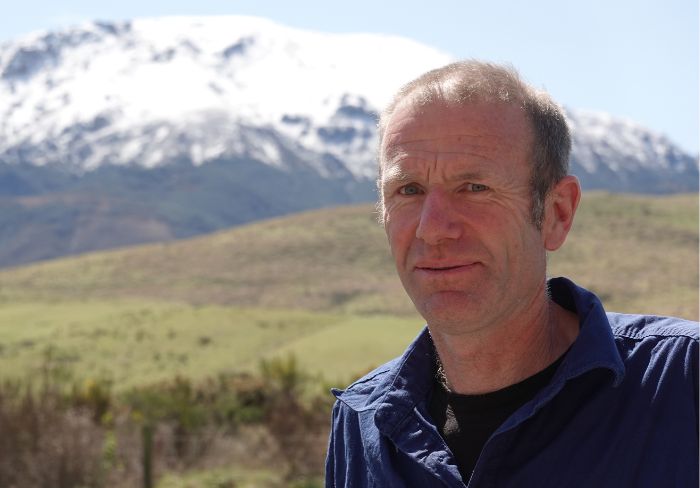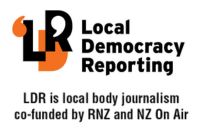Council looks to wash its hands of stockwater

They have been a feature on the Mid Canterbury landscape for over 100 years, but the stockwater race network has been gradually disappearing. Now it’s set to be erased from the map, with the council proposing to end providing stockwater services by mid-2027. Jonathan Leask reports.
The first stockwater races were constructed in Mid Canterbury in the 1860s.
By 1915, the main sections of today’s stockwater race network were in place and transformed the Canterbury Plains by providing water to rural properties for farming
Water remains a vital component of the district’s economic, social, and environmental well-being.
When it comes to stockwater there are issues around water quantity and quality.
There have been vast efficiency improvements for the crucial resource that can have major flow-on effects, like increasing flows in the Ashburton River, and a changing regulatory environment.
It is all pointing to the clock winding down on open stockwater races, council infrastructure and open spaces general manager Neil McCann said.
“The network system is in its twilight, it’s been around for a long time and is showing its age. There are much more efficient ways for people to get water to their property.
“The building of the stockwater network made the Canterbury Plains what they were, but now the spread of irrigation networks have made it a different place, it’s now morphed into something new.
“It is getting harder to extract water from rivers due to climate change, weather bombs, and the riverbeds continually changing and shifting.”
For the last decade, the Ashburton District Council committed to continuing to close stockwater races that are no longer required, and advising those relying on them to think about future alternatives.
It has been a process of gradual closures initiated by property owners.
But that could be about to change.
The council is proposing to get out of delivering stockwater once and for all in the 2024-34 long-term plan (LTP).
The council is budgeting $175,000 to investigate and initiate the closure process, which includes identifying races that would remain open for their biodiversity and amenity value.
The network has reduced from 3600km of races in 2004 to 1543km as of June 30, 2023.
A total of 563kms has been closed in the last five years, McCann said.
“The water race closure programme is on a case-by-case basis as it needs to be responsive to community needs.”
Any closure requests follows the council’s standard procedures for water race closures, which also assesses the cultural and ecological values of the specific sites before considering a closure.
Ashburton and Selwyn (1700km network) are considered the main districts for open channel stockwater networks, as opposed to piped, in New Zealand.
To put that in context, elsewhere in Canterbury the Waimakariri District Council has around 830km and Timaru 63km, while Hurunui has no council-administered stockwater.
The open stockwater races are regarded as being inefficient and can be prone to degrading water quality, he said.
It can also be unreliable - as the network is experiencing this summer with the dry conditions.
“The nature of our network means it can’t guarantee water 24/7, 365 days a year, whereas irrigation companies can offer water ‘on tap’.
“These [irrigation] companies take less from the natural rivers and streams because it’s mostly piped and therefore much more efficient than the open channels with much less lost through evaporation.”
A 2014 study by Opus into the district’s stockwater network suggested 92% of the water was being lost, with an estimated 82% lost to groundwater, meaning only 9% was being utilised for stock or irrigation.

Regularity pressure is also having an impact, an example being that the Canterbury Land and Water Regional Plan has a policy to progressively decrease the amount of water taken for community stock water supplies from the Ashburton River.
With the gradual closure of the network and fewer users contributing towards the costs of managing the network, the costs to maintain the network are increasing.
“The cost (operational expenditure) to manage and maintain the network used to sit around $1m but in this upcoming LTP it might look closer to $1.25 or $1.3m due to a range of reasons.
“They include ageing infrastructure requiring more maintenance, increased contractor costs, traffic management requirements when contractors operate in the road reserve and an increase in community expectations for cleaning.
“Council cleans the main races and local races are looked after by property owners.”
Most of the closures are local races so the cost to the council in cleaning is still maintained, he said, but the number of ratepayers contributing is declining.
“As people leave the service, the service cost increases relatively to those who are left on the scheme.”
Landowners are required to maintain any portion of stockwater race on or adjacent to their property boundary, even if they do not use the water.
The minimum stockwater charge increased by $50, to $260, in 2023/24.
The balance of the stockwater reserve fund is used to fund unexpected work and is in a $1m deficit after repairs to intakes damaged by flooding.
A 2018 council survey indicated around half of users no longer required the stockwater races and would prefer they were closed.
Having the proposed the end of council's stockwater services in the LTP will gauge how many properties still rely on or want to keep the stockwater network.
Since the 2018 survey, the council has made some progress on the options, costs and implications for closing stockwater race schemes in favour of alternative supply means.
The alternatives are irrigation companies supplying stockwater via a mixture of piped and open race or self-supply, via bores and rainwater capture, or neighbours supplying neighbours, McCann said.
“The council has resolved that Ashburton Lyndhurst Irrigation are the preferred supplier of stockwater within their irrigation command area, which has helped fast-track some closures.
“There are ongoing discussions with MHV [Mayfield Hinds Valetta irrigation scheme) at present for them to take on a similar role to Ashburton Lyndhurst but in their specific area.
“Prior to 2018, the Acton Farmers Irrigation Cooperative began providing the stockwater service to their shareholders and since then we’ve been working on the formal transfer to Acton of the service.”
Issues around compliance on the Pudding Hill intake in Methven, and the requirement for expensive fish screens, led to the council actively looking at the closing it.
“We have engaged a consultant to develop appropriate alternative supplies for those who require a solution, should the network in that area be shut down.”
It is around 220km of the network, with 174 affected properties, and so far there are around 50 properties that will need to source an alternative.
If the proposal in the LTP goes ahead to close races district-wide, the Pudding Hill closure will act as the test case for the larger operation of closing the rest of the network.
The word closure only refers to the water source being turned off.
The landowners do not necessarily have to close over the race and lose the potential drainage benefits that the 120-year-old man-made network has developed over time.
“Once we formally close a stockwater race, landowners are no longer bound by the Water Race Bylaw.
“It’s ultimately up to the landowner what they do after the stockwater race closes but the council encourages landowners to consider stormwater runoff in their
Closure will present problems to solve
Ending council-managed stockwater will be problematic, Federated Farmers Mid Canterbury president David Acland says.

The move will be a big talking point and provide plenty of questions, but there will be time to come up with answers, he said.
“Some farms have irrigation or have wells but there is still a number around that don’t have access to water, or enough water, for their stock outside of the schemes and to me that is problematic.
“Especially when you think about some of the areas in regards to consenting.
“What are the options to ensure farms do have water as people have purchased those properties in good faith that they would have access to stockwater?”
The benefit of the stockwater system has changed as farming systems evolved overtime.
“We have moved on a long way and the demands a lot of these farms have there is not enough water in the network."
The potential closure of the stockwater system will shape up to be an interesting consultation period, Acland said.
“There will be lots of questions but also time to iron it out.
“I would just hate to see a farm strangled because it no longer has access to stockwater and is forced to go through a consent process for access in an area designated a red zone for water take and it becomes an unviable beast.”
One of the interesting factors that would come from the investigation work into the closure, if it was to proceed, is just how many farms are solely reliant on the stockwater network, he said.
There are plenty of reasons for keeping some of races open, including providing a backup water source in a civil defence emergency, should the piped and mechanised options fail, he said.
Another example is in Mt Somers, where the local fire brigade often utilise stockwater for firefighting because the local drinking water pipe network doesn’t have sufficient volume, he said.

